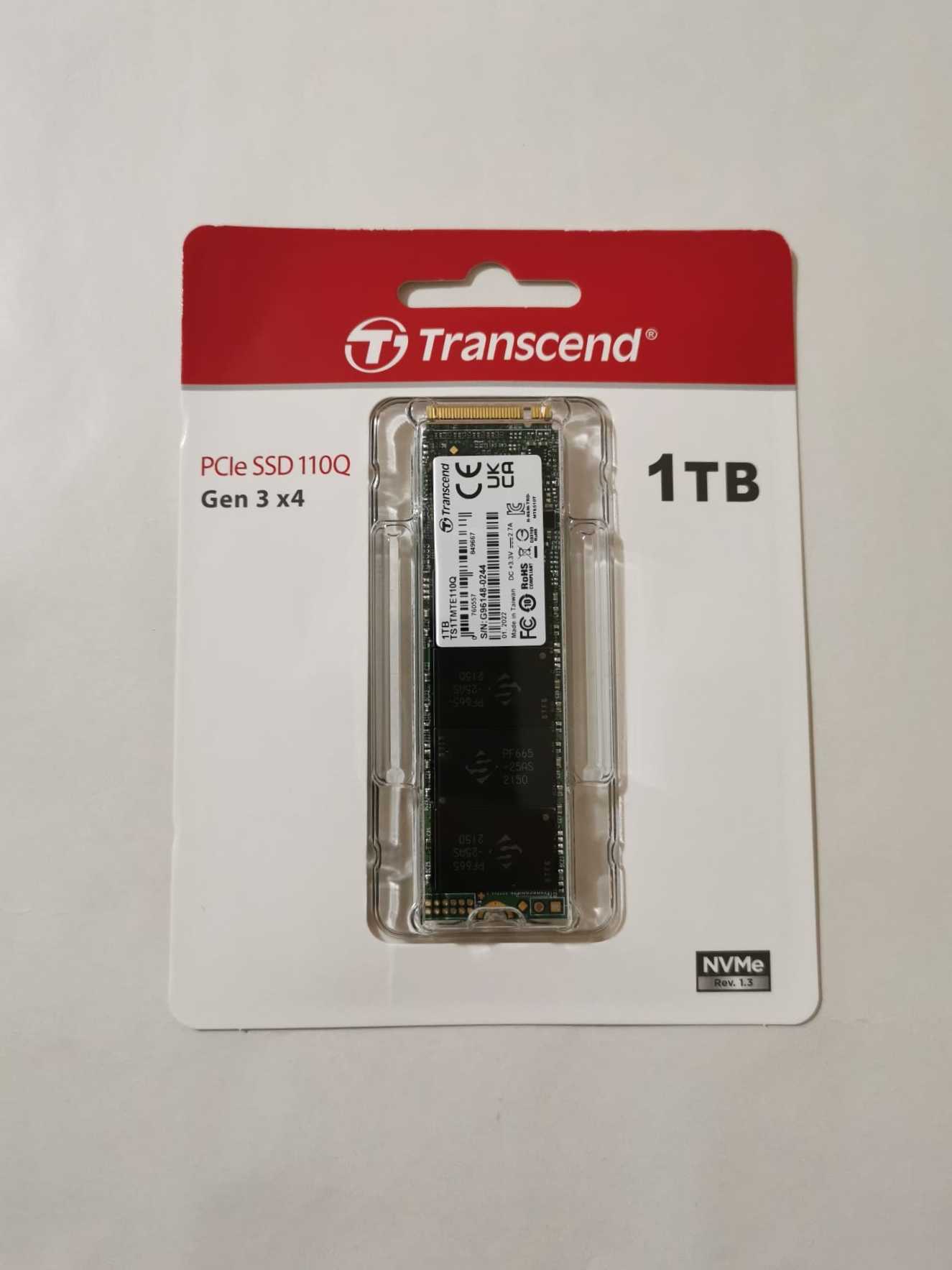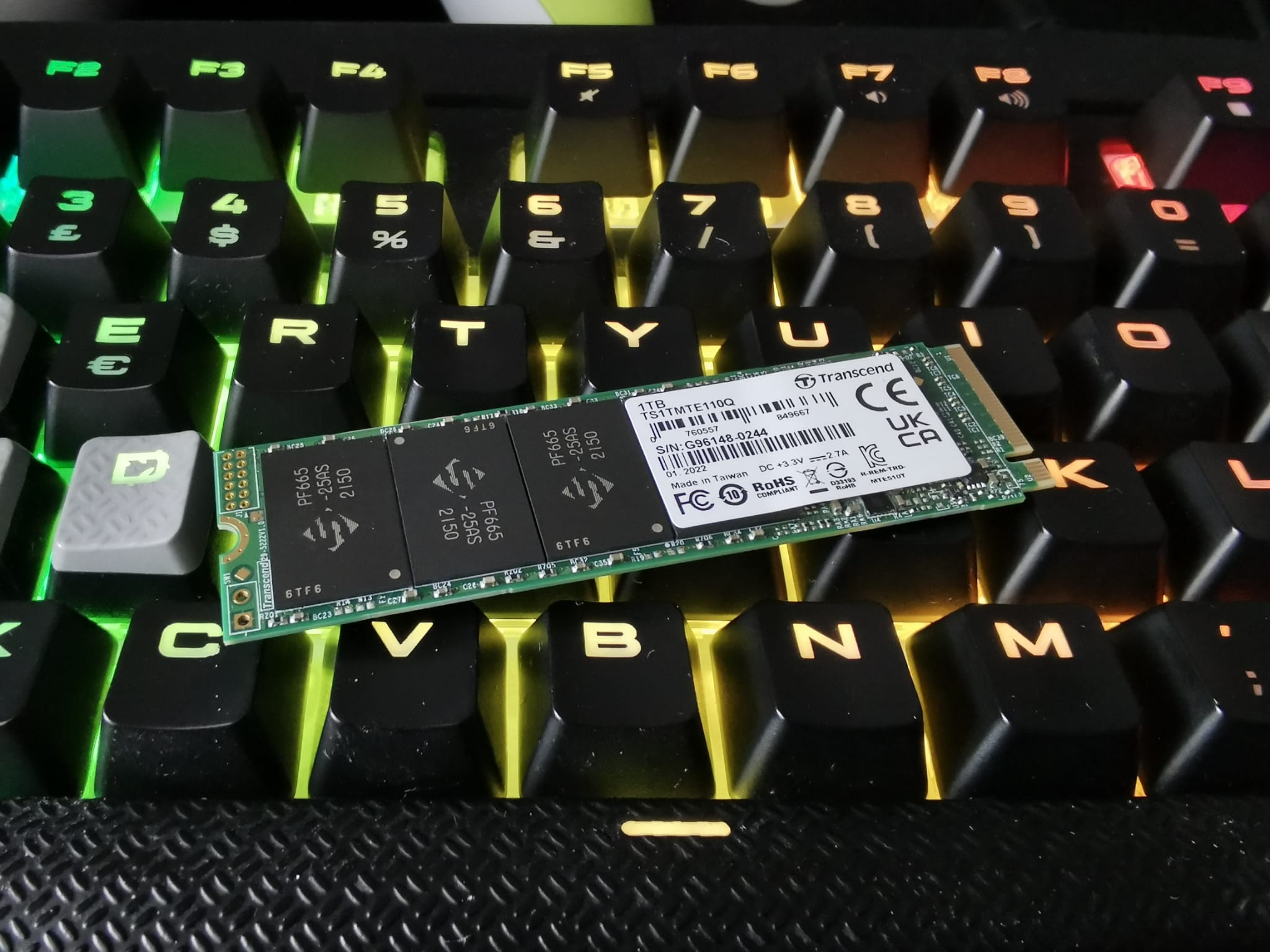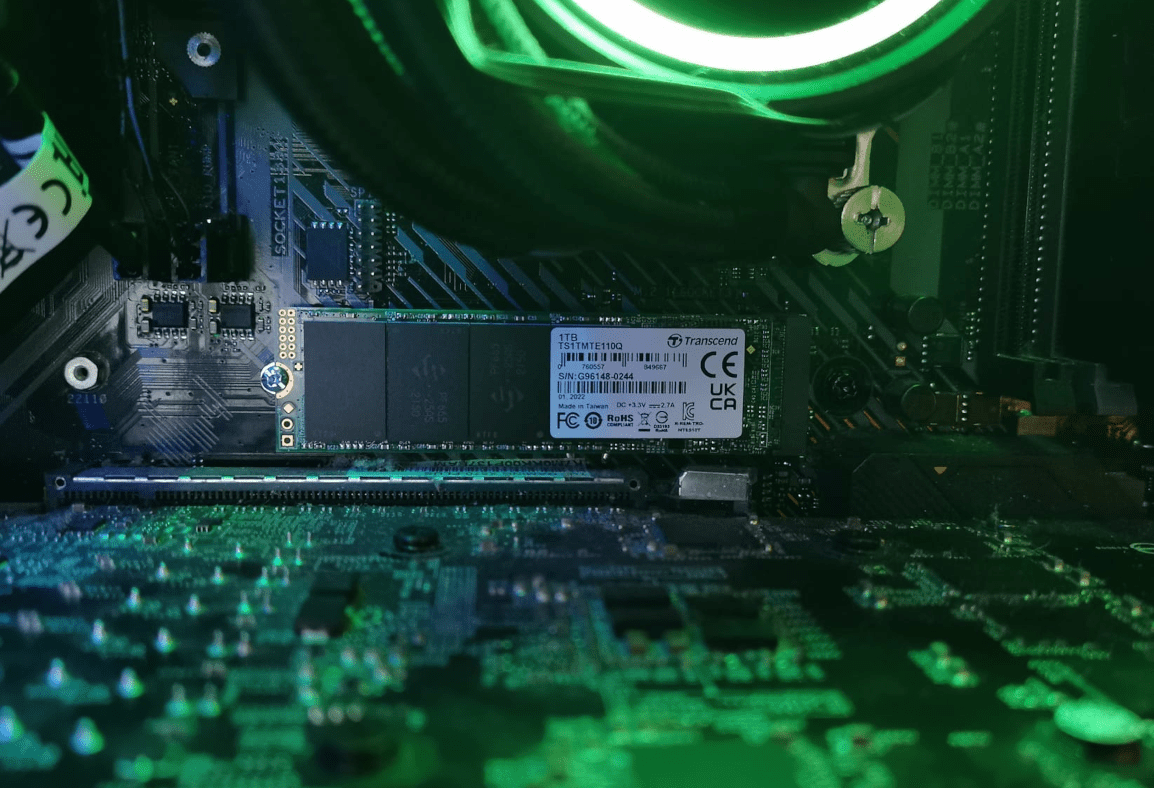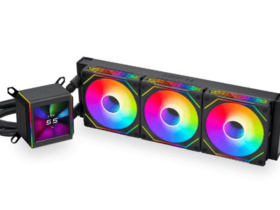In this review we will get to know the new arrival in Transcend, the M.2 PCIe Gen3 x4 MTE110Q SSD. Let’s get to know it together
Transcend has always been committed to providing the best storage memories for its users. Over the years we have known various SSDs of the Taiwanese company, fromSSD230S up to the most recent 240S with PCI Express Gen4 x4 interface and a a heatsink made of graphene. Of course, a return to Gen3 certainly marks a step back from the 240S. It will certainly be a negative point, but we do not take anything for granted. So let’s start this review and find out MTE110Q, the latest Transcend SSD recently arrived on the market.
Data sheet
- Dimensions: 80 x 22 x 3.58 mm
- Weight: 8 g
- Bus interface: NVMe PCIe Gen3 x4
- Flash type: QLC NAND flash
- Capacity: 500GB/1TB
- Operating temperature: 0°C ~ 70°C
- Voltage for operation: 3.3V±5%
- Certifications: CE/FCC/BSMI/KC/RCM/UKCA
- Warranty: 3 years
- Supported operating systems: Microsoft Windows 7 or later, Linux Kernel 2.6.31 or later

Packaging and technical characteristics | Transcend MTE110Q SSD Review
Before starting with the technical review composed of our tests, we dwell as usual on the sales package. The latter, just as it happened with the 430S and 220S, is really very simple. In fact, we will find our SSD inside a plastic protection set in a cardboard. On the front of the latter are shown the model and capacity, which in this case is 1 TB. On the back we find the serial number and other data such as certifications and the guarantee.
We are faced with a product, as seen in the technical specifications, with 3D NAND QLC memory, a structure that is composed of a lower value of P / E cycles, but has 4 Bits per cell. Although therefore the life cycle is shorter, these memories guarantee a considerable reduction in cost and better performance. The SSD in question consists of eight SpecTek PF665-25AS memory chips, arranged on both sides (four on each side), for a total of 1 TB. Below the sticker we find the heart of the unit, a controller Silicon Motion SM2263XT 4-channel.
Thanks to this configuration, Transcend declares read speeds that can reach up to 2,000 MB / swhile that of write up to 1,500 MB / s. This, however, according to the company, would be valid for the memory cut we tested. As for the 500 GB one, the reading speed can reach 1,900 MB / s, while the writing one stops at 500 MB / s only. Unity is then characterized by a PCI Express Gen3 x4 interface therefore no PCIe 4.0. The NVMe 1.3 in question has a classic disco M.2 2280 but without DRAM cache.
Software testing and results | Transcend MTE110Q SSD Review
The tests, with the relative results, conducted with the software will be reported below ATTO Disk Benchmark, HDTune Pro e Crystal Disk Mark. Before continuing, however, we make a small recap of the configuration used to test the SSD:
- Motherboard: Asus TUF Gaming X570-Plus
- Processor: AMD Ryzen 9 3900X
- RAM: 16 GB
- Operating system: Windows 11 64-bit, versione 10.0.22000 build 22000
Let’s continue now in the classic benchmarks software that we use in the editorial office, without losing sight of the focal point, namely that the performance of SSDs or hard disks are classified using two main and different parameters: the sequential speed e IOPS (input / output operations per second). The latter indicate the speed at which data is read or written randomly, using small 4 KB files and the sequential speed is expressed in MB / s (Megabytes per second) or GB / s (Gigabytes per second). Let us remember, however, that what interests the end user is what makes the difference in use, that is the value of the IOPS.
In this sense, the performance of this Transcend MTE110Q defends itself well. We are in a mid-high range, for 1 MB we have 2,742 IOPS, with an Average Access Time of 0.364. The latter is only slightly disproportionate, but performance remains average for this category. As for peak speeds, 1,913.3 MB / s were reached, with a minimum of 1,727.2 MB / s. This data was recorded with HDTune Pro.
Otherwise, as regards Atto Disk Benchmarkwe ran a test with a 256 MB file block and the performance showed a preference for reading operations. The gap is noticeable, and write performance shows per-file 4MB values of around 1.39GB / s across instead of 1.90GB / s read. With 32 KB files, we achieved write speeds of 1.16 GB / s. These are fluctuating performances, but which still place it in a medium / medium-high range for its category.
Recall that Transcend promised 2,000 MB / s in reading, while 1,500 MB / s in writing. Indeed CrystalDiskMark reflects the declared data. However, with more demanding software, which put more stress on the disk with files that are difficult to manage, performance drops by a good 5-8%.
Daily use test | Transcend MTE110Q SSD Review
We have therefore seen a more technical approach with this unit, but what should we expect from this SSD in everyday use? Let’s start immediately with one of the most frequently performed operations on our PC: the data transfer. For this purpose we have decided to use a folder containing 1,473 itemsfor a total of 215 GB. These are folders related to video games, then with very different files inside.
The process kept us busy for a few minutes with spikes, as far as writing is concerned, highs of 1.30 GB / s and lows of 900 MB / s. During the operation our unit, mounted without a heatsink to cool it, reached one maximum temperature of 69 ° C. Certainly such high temperatures would not be underestimated, but running an SSD at full power is somewhat difficult. During the resting or lightly loaded phase, the latter amounted to a range that went from 35 ° C to 45 ° C.
Not happy, we decided to test this unit also under the gaming sidefinding to our pleasant surprise, some performance equal to that of a Gen4. In this respect, in fact, we found almost identical loading times for games like Assassin’s Creed: Odyssey e Red Dead Redempiton 2. Quite a different case was with Assassin’s Creed: Valhallawhere we even found a 3 seconds lower loading time. Although it therefore suffers from some small performance problems on the fairly full-bodied data exchange, it can certainly be a good solution for the gaming side, with really short loading times.

Who should buy it?
We’ve come to the end of this review of Transcend’s MTE110Q SSD and it’s time to take stock. As for the test with CrystalDiskMark, the expectations proposed by the company have been fully respected, with a reading speed of 2,000 MB / s and a writing speed of 1,500 MB / s. However if the unit experiences prolonged stress performance drops significantlywith a deficit of up to 8% and temperatures reaching 69 ° C.
Obviously, such stress is not easily reachable during daily use and will hardly last for several minutes or even hours. Although therefore these small moles, the unit defends itself well, categorizing itself in a respectable medium-high range. Also the use in the gaming side is very good and indeed it surprised us very much from this point of view. So who should buy this SSD?
The purchase is recommended for an audience that is not looking for too high performance, but for those who want expand your storage with high-performance units or maybe just replace the old HDD or SSD connected via SATA cable. Moreover we recommend its use especially for those who have a good air flow in their case or who has a special heat sink. After prolonged use in poorly ventilated environments the units in fact they tend to overheat slightlywith peaks of 55-60 ° C during the gaming phase or the download with attached installation of the games.
For this review of Transcend’s MTE110Q SSD that’s it now. We remind you that the version we tested is the 1TB one. In order not to miss further reviews related to the hardware universe, keep following the pages of techgameworld.com!
A good compromise between performance and price
Points in favor
- Good performance in’daily use
- Fast loading in gaming
- Read / write speeds observed …
Points against
- … albeit with some difficulty with complex files
















Leave a Reply
View Comments